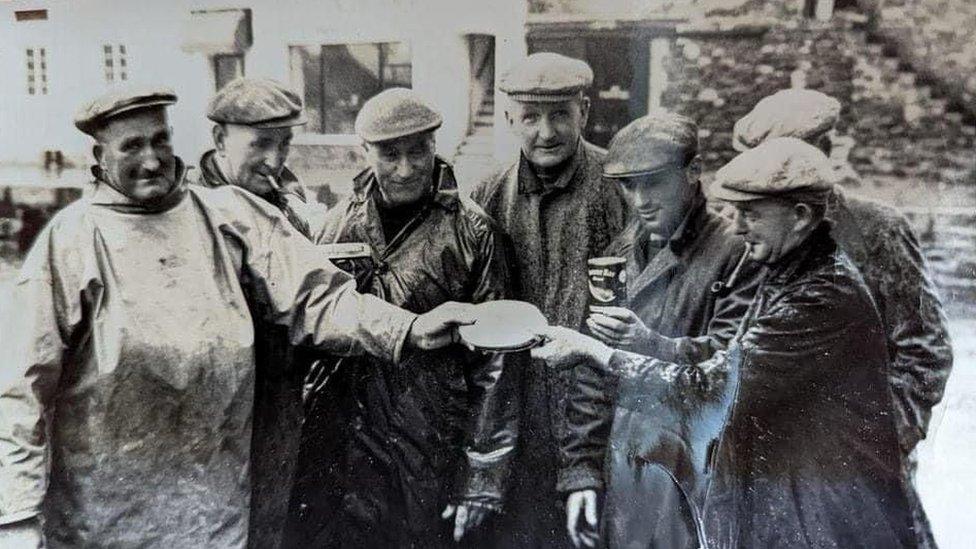Fishers trained to dissect fish to gather data
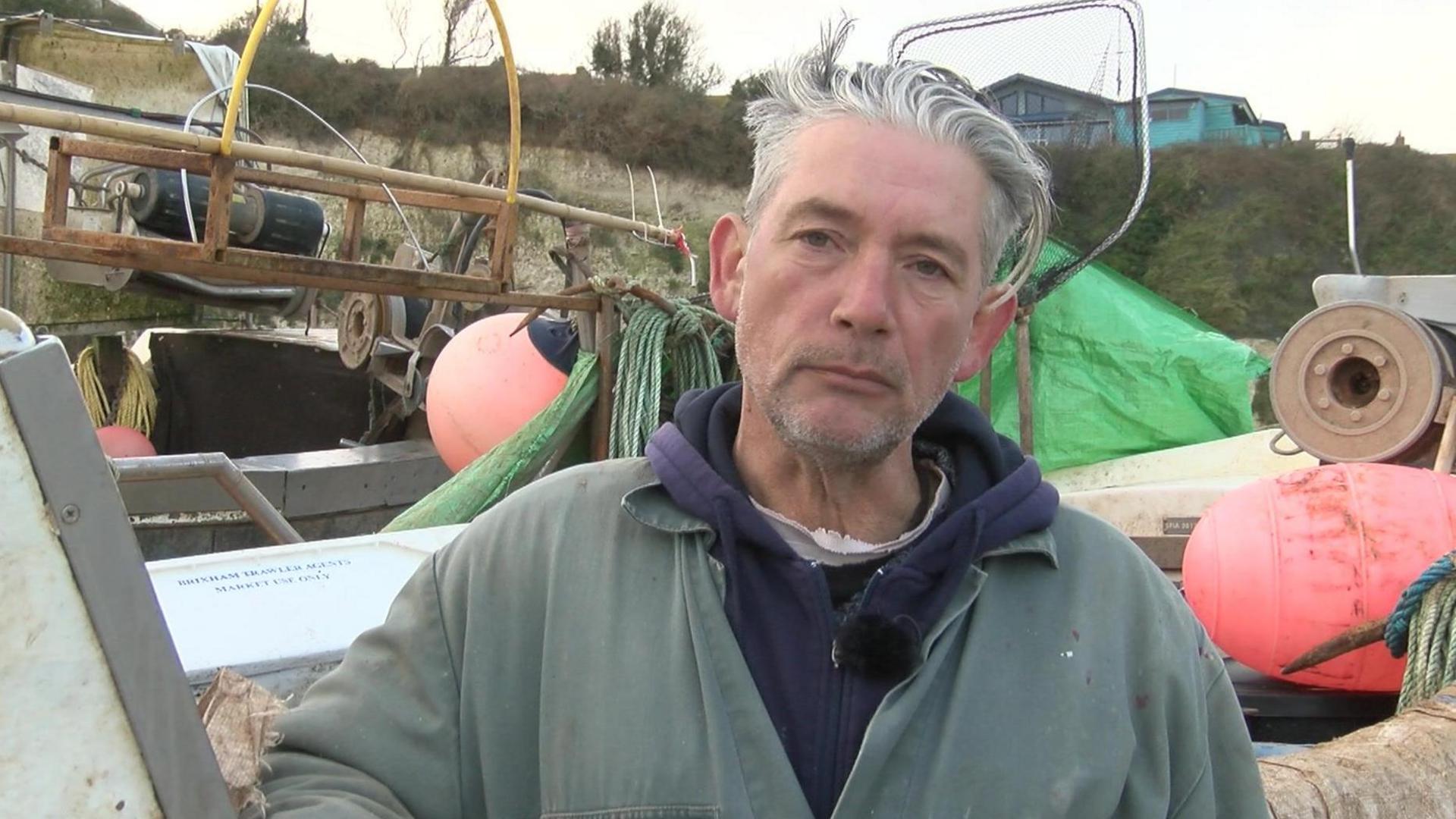
Fisherman Stephen Andrews said a specific bone in fish could be analysed to detect its age and rate of growth
- Published
Fishermen in Devon and Dorset are being trained in a new science to help better understand fish stocks.
The project in Lyme Bay is teaching dozens of fishermen to dissect a specific bone in fish which can be used to detect its age and rate of growth.
The aim is to provide as much data as possible to the Department for Environment Food and Rural Affairs (Defra) to secure fishing rights after a ban on pollack fishing a year ago which fishermen said would be damaging for the industry.
Concerns had been raised that a similar situation could happen with other fish species without sufficient data around fish stocks.
'Rings in a tree'
About 50 fishermen have taken part in the training programme, which involves analysing the otolith bone located in the head of a fish.
Fisherman Stephen Andrews said the bone contained a series of rings, which "show you the age and how fast it grows".
He said: "They're just like the rings in a tree, it's more or less the same principle.
"It isn't just about pollack, it's about all fish we catch in Lyme Bay because most, if not all, fish stocks are data deficient."
The bone, once collected, is sent to scientists to examine under a microscope.
Photographs and measurements are also taken, along with details such as water temperature and signs of spawning.
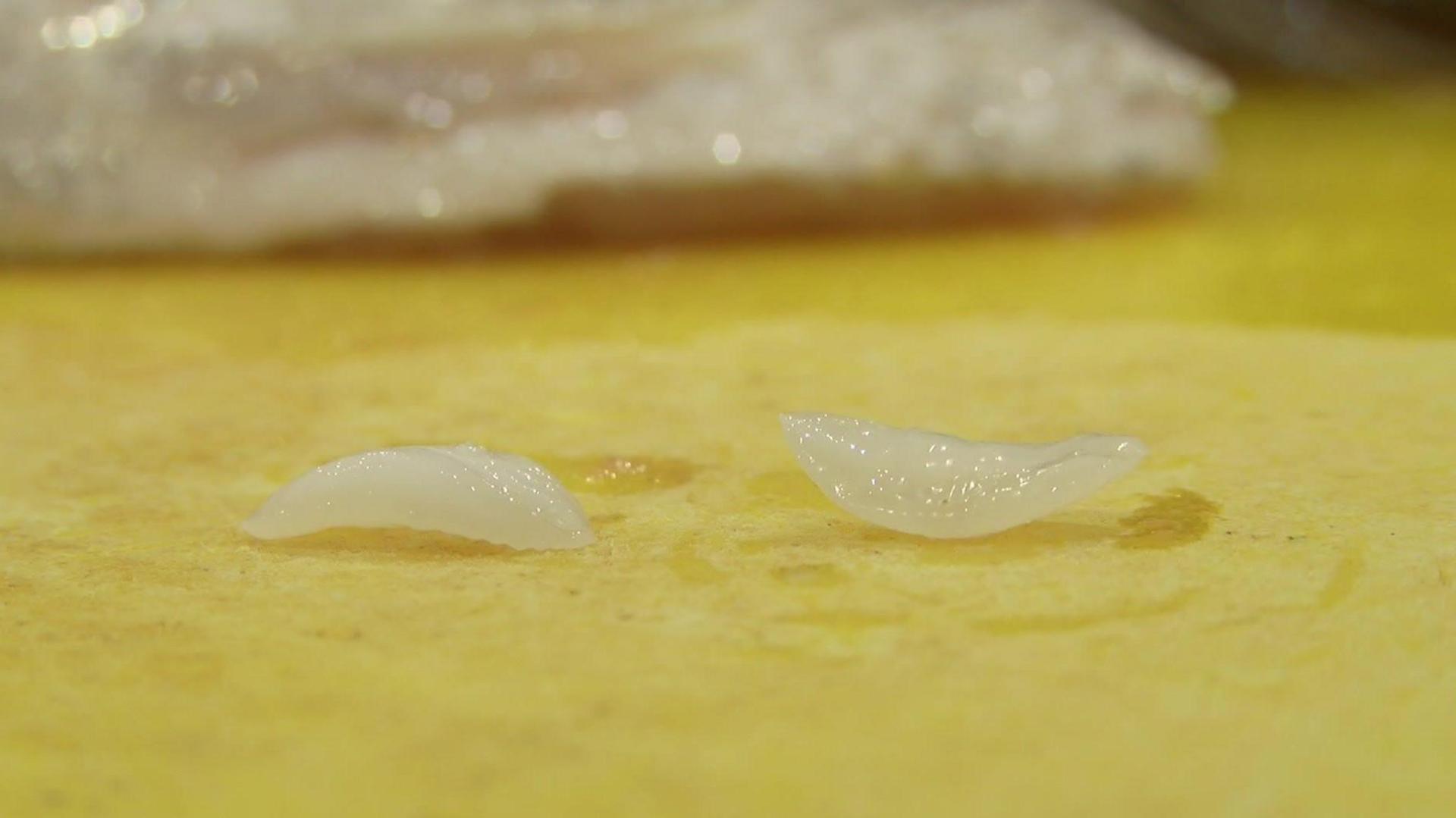
About 50 fishermen have taken part in the training programme, which involves analysing the otolith bone
Dr Bryce Stewert, from the Marine Biological Association in Plymouth, said: "If you are able to take samples of fish and work out how many individuals are in each different age class, that tells you something about the health of the population."
Project coordinator Mandelai Wolfe said the data had to be collected in a "compliant manner" that could work with the government's current data collection processes.
She added: "Once they're trained fully, then we're looking for partners to start collecting that data and feeding it in."
The fishermen and biologists said they hoped similar schemes could be rolled out in fishing communities around the region.
'Particularly damaging'
Defra said the quota on pollack had been reduced to zero to preserve stocks, but the move angered fishermen in south-west England.
Ben George, who fishes from Sennen Cove in Cornwall, previously told the BBC he never once "dreamed it could be a total ban".
He said: "It's particularly damaging for the small inshore fisherman because they can't diversify easily now to anything else.
"It makes up 30 to 40% of my earnings, whereas [for] some people, it might be 80, 90, maybe 100%."
Follow BBC Cornwall on X, external, Facebook, external and Instagram, external. Follow BBC Devon on X, external, Facebook, external and Instagram, external. Send your story ideas to spotlight@bbc.co.uk, external.
- Published11 April 2024
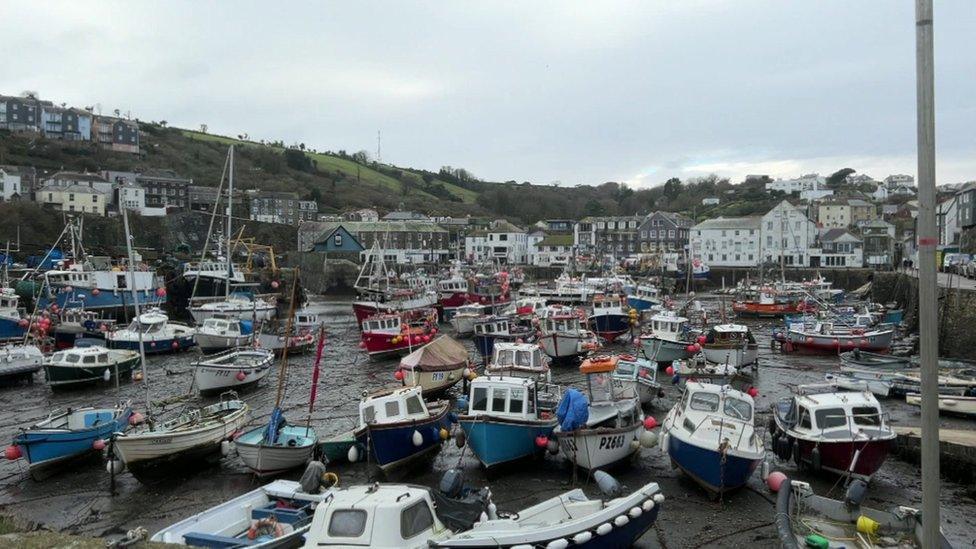
- Published17 December 2023
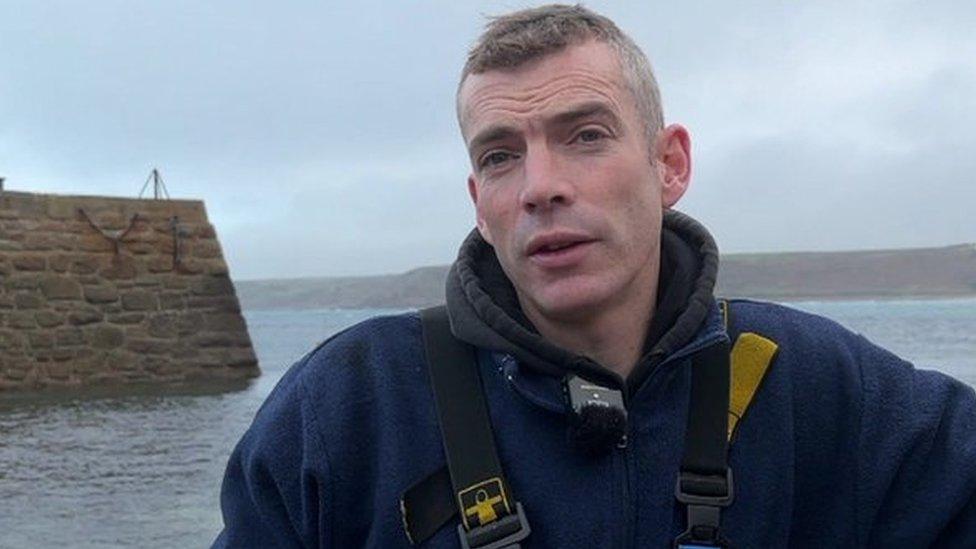
- Published11 February 2024
